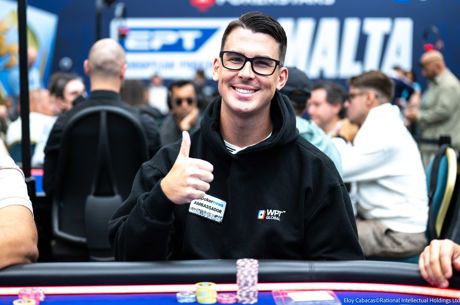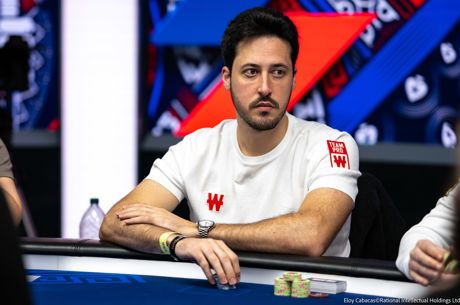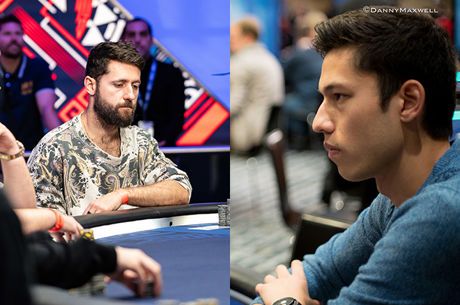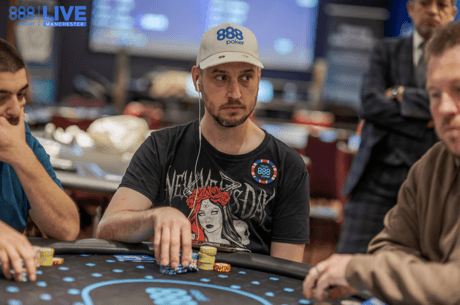Trapping from Position with Speculative Hands

The European Poker Tour is about to touch down once again this week, heading to Malta for a first-ever visit. Between PokerNews’ live reporting and the coverage on EPT Live, students of the game will no doubt be provided many new examples of interesting hands to contemplate and from which to learn.
Such comprehensive coverage allows those following EPTs to examine interesting hands from the early stages all of the way to the final tables. For example, during last season at EPT Deauville there was an interesting hand from Day 4 that saw Kamel Boukhalfa (pictured at right) double up through Rustem Muratov, one in which Boukhalfa was able to set a trap for Muratov and see that trap pay off.
The hand illustrated a few different lessons, including the importance of position, why players sometimes call preflop raises with speculative hands, and how no-limit hold’em often involves finding ways to manipulate your opponent into committing chips in spots that are in fact unfavorable to them.
At the time the blinds were 8,000/16,000 with an ante of 2,000. Muratov opened with a 2x raise to 32,000 from middle position and found a call from Boukhalfa on the button. The two took a flop of 6♠5♠K♦ and Muratov slowed with a check. Boukhalfa took this opportunity to fire out a bet of 42,000. Muratov announced a check-raise all in which was actually a bet for Boukhalfa’s stack of 326,000. Boukhalfa snapped him off and the hands were placed on their backs.
Boukhalfa: 6♥5♥
Muratov: K♥J♥
Boukhalfa led with two pair and ultimately clinched the double-up after the turn and river finished the board with the 9♠ and the 6♣, respectively.
Before the flop, Boukhalfa called in position with suited connectors. The general purpose of playing hands like these is to hit a flop and thus disguise the strength of your hand against an opponent who is likely raising with big cards. After Boukhalfa flopped bottom two pair, it seemed that was exactly what had happened.
Curioiusly enough, Muratov slowed down with a check on the flop. Generally, a continuation bet is considered standard practice after opening for a raise before the flop, and yet Muratov opted not to make such a bet on this board. This was likely because he flopped top pair and was looking to disguise the strength of his hand against Boukhalfa.

In other words, Muratov, too, was trying to set a trap of sorts after the flop. Unfortunately for him, this check was the start of a slippery slope that lost him the pot.
After the check, Boukhalfa decided to fire out a bet into the pot. This bet worked for him because most of the time it looks as if he’s trying to pick up the pot after Muratov showed weakness with a check on the flop. It’s likely this is exactly what Muratov thought and is why he decided to announce an all-in bet over the top.
The check-raise shove was fairly large for this stage in the hand, shipping all in for 40 big blinds effective. Despite the fact that Muratov was likely attempting to disguise strength of his own cards with his flop check, he made a move — the check-raise all-in — for which it was likely he was only getting called by a better hand. If Boukhalfa was truly trying to steal the pot here, a smaller raise could have done the exact same job of getting him to fold without risking so much.
Conversely, there are so many hands that beat top pair with a jack kicker that it’s likely Muratov turned his hand into a bluff without knowing it. One would assume it would take a fairly strong hand for Boukhalfa to call off a 40-big blind stack, so there’s little chance that KxJx would be good in this spot if called.
Ultimately, the hands were tabled after Boukhalfa called and Muratov was behind. Muratov did leave himself with outs, but regardless of that fact this is never a spot a player wants to be in. The turn and river bricked out for Muratov and he was forced to ship roughly half of his chips across the table.
In the end, the hand shows the value that can sometimes come from playing speculative hands, especially with position. It also provides a good example of how making strong hands is nice, but being able to manipulate opponents into committing chips with lesser-strength hands is even better.
Get all the latest PokerNews updates on your social media outlets. Follow us on Twitter and find us on both Facebook and Google+!









